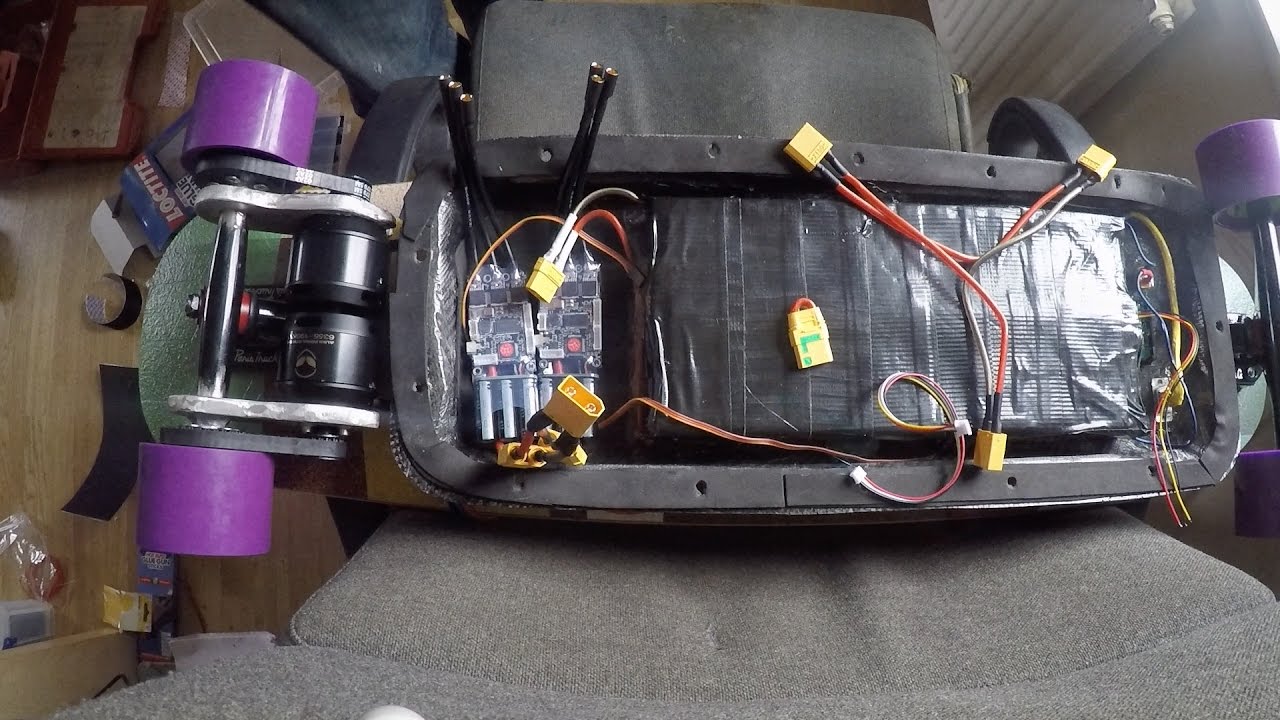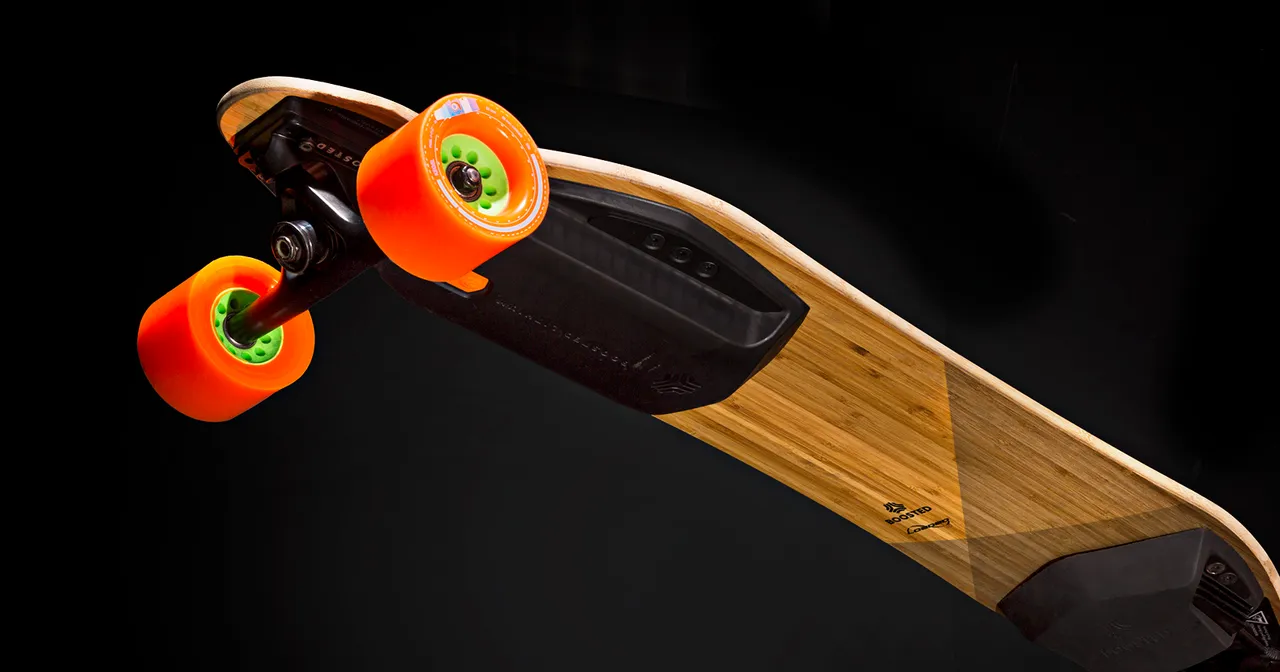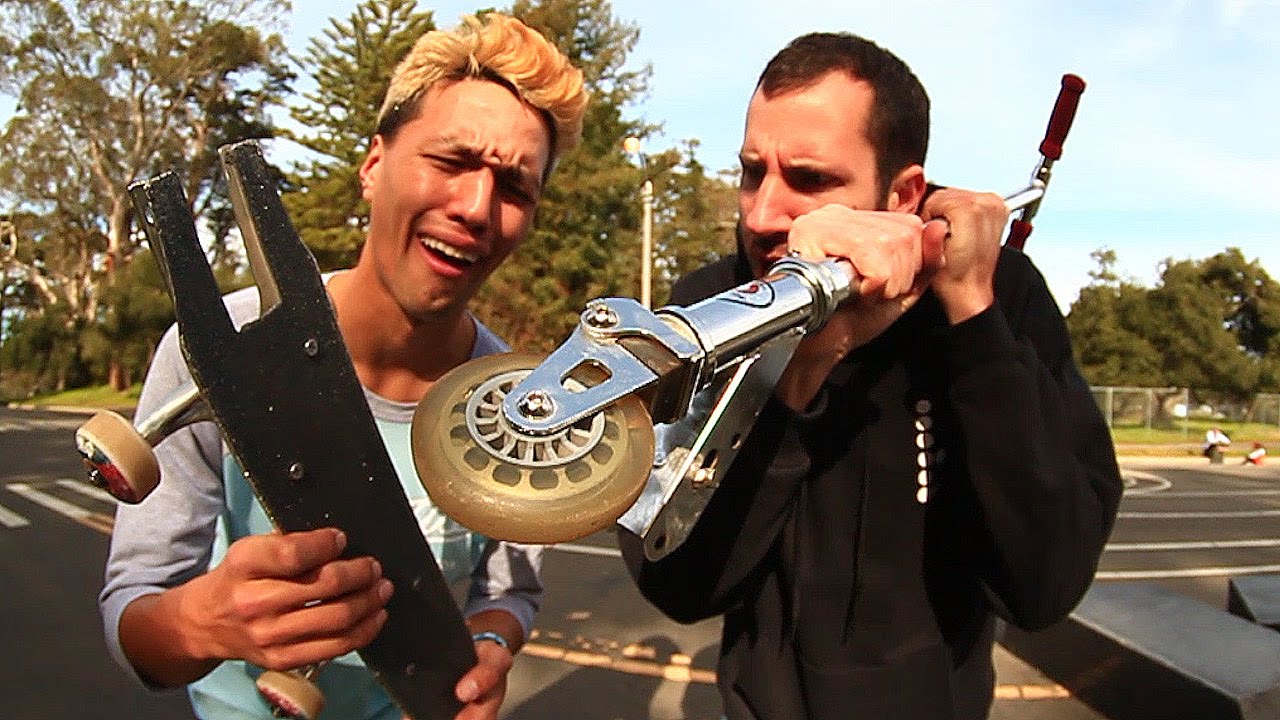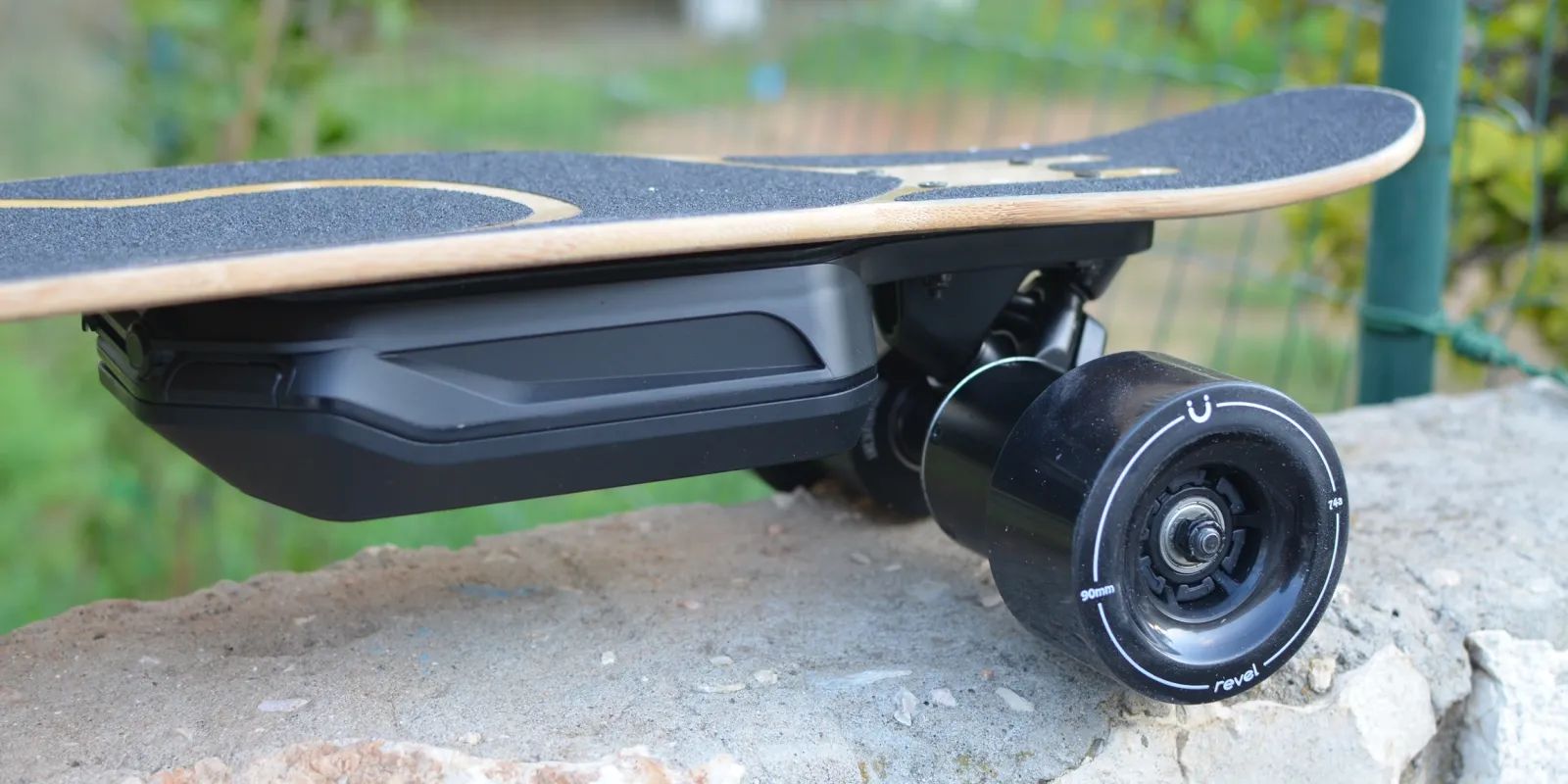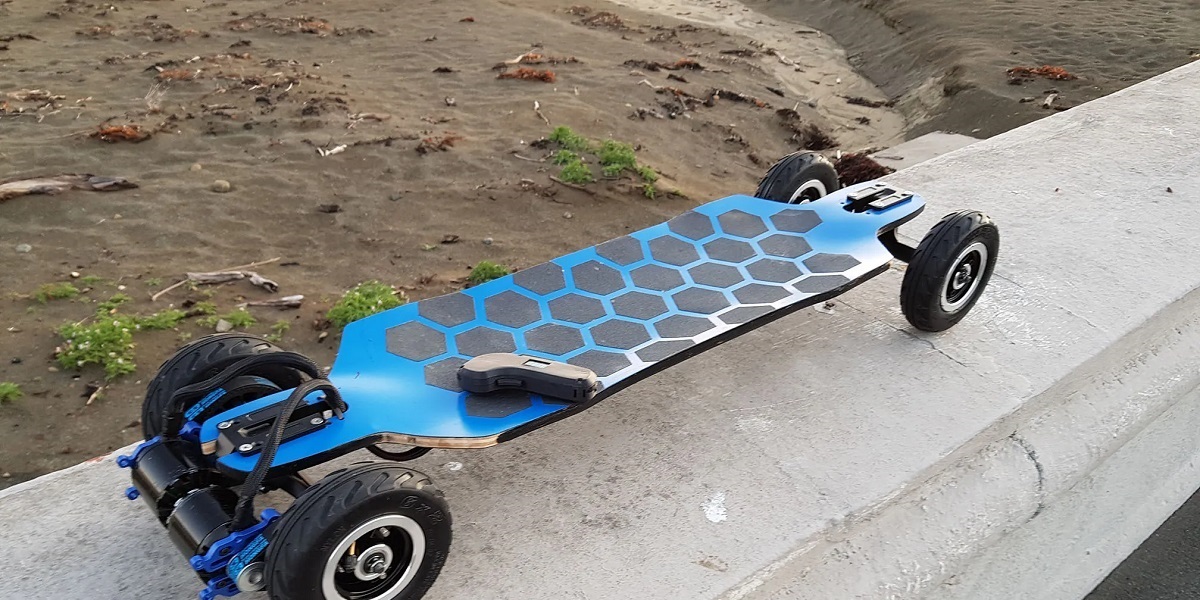## Introduction
Introduction
When it comes to choosing the right electronic speed controller (ESC) for an electric skateboard, it can be overwhelming due to the variety of options available on the market. Whether you’re an experienced rider or a beginner, selecting the appropriate ESC is crucial to enjoy a smooth and safe ride.
An ESC is a critical component of an electric skateboard that controls the speed and acceleration. It connects the battery, motor, and receiver, ensuring that the rider can control their board effectively. In simple terms, an ESC acts as the “brain” of the skateboard, regulating power delivery to the motor in response to the rider’s input.
In the world of electric skateboards, there are different types of ESCs available, each with its own set of features, capabilities, and compatibility. From single-motor setups to dual-motor configurations, there is an ESC solution to suit every rider’s needs and preferences.
Choosing the right ESC can greatly impact the performance and overall riding experience of an electric skateboard. Factors such as compatibility with the motor and battery, as well as the features and functionality of the ESC, all play a crucial role in determining the optimal choice for your ride.
In this comprehensive guide, we will delve into the world of electric skateboard ESCs. We will explore the different types of ESCs available, discuss the factors to consider when selecting the right ESC for your board, and provide recommendations for ESCs suited for various skill levels.
So, whether you’re a beginner looking to upgrade your ride or an advanced rider seeking the next level of performance, read on to discover everything you need to know about selecting the perfect ESC for your electric skateboard.
## What is an ESC?
What is an ESC?
An electronic speed controller (ESC) is a vital component in an electric skateboard that regulates the speed and acceleration of the board. It is essentially a microprocessor-controlled device that connects the electric motor, battery, and receiver, ensuring smooth and precise control over the skateboard’s movements.
The main function of an ESC is to convert the direct current (DC) power from the battery into alternating current (AC) power for the electric motor. By monitoring the rider’s input through the transmitter and receiver, the ESC determines the desired speed and applies the appropriate power output to the motor.
ESC technology has advanced significantly over the years, and modern ESCs offer a wide range of features and functionalities. Some ESCs allow riders to customize acceleration and braking settings, while others have built-in safety features such as thermal protection or over-voltage detection to prevent damage to the motor or batteries.
ESC units come in various sizes, shapes, and configurations to accommodate different types of electric skateboards. While some boards have a single motor setup, others utilize dual motors for enhanced power and performance. As a result, ESCs can be tailored to match the specific requirements of the board and its motor configuration.
Furthermore, ESCs often come with additional features such as regenerative braking, which helps to extend battery life by converting the kinetic energy of braking into electrical energy that is then stored back into the battery. This feature not only enhances efficiency but also allows riders to control their speed more effectively.
Overall, the ESC plays a vital role in the operation of an electric skateboard, ensuring smooth acceleration and reliable performance. Understanding the function and features of an ESC is essential when selecting the right one for your electric skateboard, as it can greatly impact your riding experience and overall enjoyment of the sport.
## Types of Electric Skateboard ESCs
Types of Electric Skateboard ESCs
When it comes to electric skateboard ESCs, there are several types available on the market, each offering different features and capabilities. Understanding the different types can help you make an informed decision when selecting the ideal ESC for your electric skateboard. Let’s explore some of the common types:
- Brushed ESCs: Brushed ESCs are the traditional type of ESCs used in electric skateboards. They are compatible with brushed motors, which have physical brushes that make contact with the motor’s rotor to create motion. While brushed ESCs are cost-effective, they tend to be less efficient and produce more heat compared to other types.
- Brushless ESCs: Brushless ESCs are the preferred choice for many electric skateboard enthusiasts. They are more efficient, produce less heat, and offer smoother acceleration compared to brushed ESCs. Brushless ESCs are compatible with brushless motors, which do not have physical brushes and rely on electronic commutation for motor control.
- VESC (Vedder Electronic Speed Controller): VESC is a popular type of ESC known for its versatility and customizability. It is an open-source project that allows users to modify and tweak the ESC’s settings to fit their specific requirements. VESCs often come with advanced features like regenerative braking, torque control, and motor temperature monitoring.
- Programmable ESCs: Programmable ESCs offer the ability to customize various parameters such as acceleration, braking, and maximum speed. These ESCs often come with software that allows riders to fine-tune the performance of their electric skateboard to their liking. Programmable ESCs are suitable for riders who prefer a high level of control and customization.
Ultimately, the type of ESC you choose will depend on your specific needs and preferences. Brushless ESCs are generally recommended for their efficiency and performance, while VESC and programmable ESCs offer advanced features for customization. Understanding the differences between these types of ESCs will assist you in selecting the most suitable one for your electric skateboard.
## Choosing the Right ESC for Your Electric Skateboard
Choosing the Right ESC for Your Electric Skateboard
Choosing the right electronic speed controller (ESC) for your electric skateboard is crucial to ensure optimal performance and a smooth riding experience. Here are some factors to consider when selecting the right ESC for your board:
- Motor Compatibility: The ESC you choose must be compatible with the motor you are using or plan to use on your electric skateboard. Brushless motors require brushless ESCs, while brushed motors require brushed ESCs. Ensure that the ESC supports the motor type you have or intend to install on your board.
- Battery Compatibility: Electric skateboards use different battery configurations, such as lithium-ion or lithium polymer. It’s essential to choose an ESC that is compatible with your specific battery type in terms of voltage and current requirements. Using an incompatible ESC can result in poor performance or even damage to the ESC or battery.
- Amp Rating: The amp rating, also known as current capacity, is an essential consideration when selecting an ESC. It determines the maximum amount of current the ESC can handle. Ensure that the amp rating of the ESC matches or exceeds the current requirements of your motor and battery to avoid overheating and potential damage.
- Size and Form Factor: ESCs come in various sizes, and it’s essential to choose one that fits your electric skateboard’s available space. Consider the dimensions and form factor of the ESC to ensure it can be easily installed within the board without any clearance or spacing issues.
- ESC Features: Different ESCs offer various features and functionalities. Some may include regenerative braking, waterproofing, or programmability. Consider your riding style and preferences to determine which features are important to you. For instance, if you prioritize customization, a programmable ESC may be a better choice.
It’s also worth considering the reputation and reviews of the ESC brand or manufacturer. Look for well-known and reputable brands that have a track record of producing reliable and high-quality ESCs.
Lastly, it’s essential to consider your skill level as a rider. Beginners may benefit from ESCs with smoother acceleration and braking, while advanced riders may opt for ESCs that offer more customization and control options.
By taking into account these factors, you can choose the right ESC for your electric skateboard that ensures optimal performance, compatibility, and an enjoyable riding experience.
## Factors to Consider When Selecting an ESC
Factors to Consider When Selecting an ESC
Choosing the right electronic speed controller (ESC) for your electric skateboard requires careful consideration of several factors. Here are some key factors to keep in mind when selecting an ESC:
- Motor Compatibility: The ESC you choose must be compatible with the type of motor you have or plan to use on your electric skateboard. Brushless motors require brushless ESCs, while brushed motors require brushed ESCs. Ensure that the ESC supports the motor type you have or intend to install on your board to ensure proper functionality and performance.
- Battery Compatibility: Consider the compatibility of the ESC with your electric skateboard’s battery. Pay attention to the voltage and current requirements of your battery and ensure that the ESC can handle the power demands effectively. Using an incompatible ESC can lead to subpar performance or even damage to the ESC or battery.
- Amp Rating: The amp rating, or current capacity, is an important factor to consider when selecting an ESC. It determines the maximum current that the ESC can handle. Ensure that the amp rating of the ESC matches or exceeds the current requirements of your motor and battery to avoid overheating and potential damage to the ESC.
- Size and Form Factor: The size and form factor of the ESC are critical considerations to ensure compatibility with your electric skateboard. Measure the available space within your board and choose an ESC that will fit without any clearance or spacing issues. Take into account the dimensions and mounting options of the ESC to ensure a proper and secure installation.
- ESC Features: Different ESCs offer various features and functionalities. Consider what features are important to you and align with your riding style. Some ESCs may include regenerative braking, waterproofing, programmability, or compatibility with wireless controllers. Evaluate the features and prioritize those that enhance your riding experience and align with your preferences.
- Brand and Reputation: It’s important to consider the reputation and track record of the ESC brand or manufacturer. Look for well-established and reputable brands known for producing high-quality and reliable ESCs. Reading customer reviews and seeking recommendations from fellow electric skateboard riders can also provide valuable insights into the quality of different ESCs.
- Skill Level: Consider your skill level as a rider when selecting an ESC. Beginners may benefit from ESCs with smoother acceleration and braking, while advanced riders may prefer ESCs that offer more customization and control options. Choose an ESC that matches your skill level to ensure an optimal riding experience.
By carefully considering these factors, you can select the right ESC for your electric skateboard that offers compatibility, performance, and the desired features to enhance your riding experience.
## Compatibility with Motor and Battery
Compatibility with Motor and Battery
When selecting an electronic speed controller (ESC) for your electric skateboard, it is crucial to ensure compatibility with your motor and battery. Choosing the right ESC that is compatible with your specific motor and battery setup is essential for optimal performance and safety. Here are some considerations to keep in mind:
Motor Compatibility: The ESC you choose must be compatible with the type of motor you have or plan to use for your electric skateboard. There are two main types of motors used in electric skateboards: brushed motors and brushless motors. Brushed motors have physical brushes that make contact with the rotor, while brushless motors do not. Make sure that the ESC supports the type of motor you have or intend to install on your board to ensure proper functionality and performance.
Battery Compatibility: Consider the compatibility of the ESC with your electric skateboard’s battery. Pay attention to the voltage and current requirements of your battery and ensure that the ESC can handle the power demands effectively. Using an incompatible ESC can lead to suboptimal performance and may even result in damage to the ESC or battery. Check the specifications of the ESC and ensure they align with the voltage and current requirements of your battery.
Amp Rating: The amp rating, or current capacity, of the ESC is another crucial factor to consider when it comes to compatibility with the motor and battery. The amp rating indicates the maximum amount of current that the ESC can handle. It is important to choose an ESC with an amp rating that matches or exceeds the current requirements of your motor and battery. Inadequate amp rating can lead to overheating and potential damage to the ESC. Always refer to the specifications provided by the manufacturer to ensure a proper match between the amp rating of the ESC and the power requirements of your setup.
ESC Programming and Configurability: Some ESCs offer programming options and customizability, allowing you to adjust various settings such as acceleration and braking curves. This flexibility can be beneficial if you have specific preferences or if you want to fine-tune your electric skateboard’s performance. Consider whether you desire an ESC that offers advanced programming features and compatibility with software for customization.
It is important to thoroughly research and understand the compatibility requirements for your motor and battery before selecting an ESC. Consult the user manuals and specifications of your motor and battery to gather the necessary information. Additionally, reach out to the manufacturer or seek guidance from experienced electric skateboard riders if you need assistance in determining the compatibility of different components.
By ensuring compatibility between the ESC, motor, and battery, you can create a harmonious and optimized setup for your electric skateboard, resulting in better performance, reliability, and an overall enjoyable riding experience.
## ESC Features to Look Out For
ESC Features to Look Out For
When selecting an electronic speed controller (ESC) for your electric skateboard, it’s important to consider the features that can enhance your riding experience and provide additional functionality. Here are some key ESC features to look out for:
- Regenerative Braking: Some ESCs offer regenerative braking, which converts the kinetic energy generated during braking into electrical energy to recharge the battery. This feature not only extends the battery life but also allows for smoother and more controlled slowing down and stopping.
- Waterproofing: If you plan to ride your electric skateboard in wet conditions or encounter water splashes, consider an ESC that offers waterproofing. Waterproof ESCs can provide protection against water damage, ensuring the longevity and reliability of your skateboard’s electrical components.
- Programmability: Look for ESCs that are programmable, allowing you to customize various parameters such as acceleration, braking strength, and maximum speed. Programmable ESCs can provide a more tailored riding experience to suit your preferences and riding style.
- Thermal Protection: ESCs with thermal protection mechanisms can monitor the temperature of the components and prevent overheating. Thermal protection not only increases the lifespan of the ESC but also enhances safety by preventing damage and potential failures caused by excessive heat build-up.
- Smooth Acceleration and Braking: Smooth acceleration and braking are desirable features to ensure a comfortable and controlled riding experience. Look for ESCs that offer gradual and predictable acceleration and braking curves, allowing for precise control and reduced jerky movements.
- Low Voltage Cutoff: Some ESCs include a low voltage cutoff feature, which automatically detects when the battery voltage drops to a certain level and prevents further discharge. This protects the battery from deep discharge, preserving its lifespan and overall performance.
- Failsafe Functionality: Failsafe functionality is crucial for safety. Look for ESCs that have failsafe mechanisms, which can detect signal loss or interference from the remote control and automatically apply brakes or bring the electric skateboard to a controlled stop.
When considering these features, it’s important to prioritize based on your specific needs and riding style. Consider the conditions and environments in which you plan to ride, as well as your desired level of control and customization.
Keep in mind that ESCs with advanced features may come at a higher price point. Therefore, it’s essential to strike a balance between the features you desire and your budget.
By carefully evaluating and selecting an ESC with the right features, you can customize your electric skateboard to suit your preferences, enhance safety, and maximize your enjoyment while riding.
## Recommended ESCs for Different Skill Levels
Recommended ESCs for Different Skill Levels
Choosing the right electronic speed controller (ESC) for your electric skateboard is essential, especially when considering your skill level as a rider. Different ESCs offer varying levels of performance, customization, and control. Here are some recommended ESCs categorized by skill level:
Beginner:
For beginners, it’s important to prioritize ESCs that offer smooth and gradual acceleration, reliable braking, and ease of use. These ESCs are often designed with safety features to ensure a user-friendly experience:
- 1. Hobbywing QuicRun ESC: This ESC is known for its affordability, reliability, and ease of use. It provides smooth acceleration and comes with a built-in low voltage cutoff to protect the battery.
- 2. FOCBOX Unity ESC: The FOCBOX Unity offers great control and responsiveness, making it suitable for beginners. It has programmable features and regenerative braking for improved efficiency.
Intermediate:
Intermediate riders are more experienced and often seek ESCs that offer a balance between performance and customization. Here are some recommended ESCs for intermediate riders:
- 1. ESCape VESC: The ESCape VESC is known for its versatility and customization options. It offers smooth acceleration, regenerative braking, and it supports various motor configurations.
- 2. Maytech Super-E ESC: The Maytech Super-E ESC is reliable and offers excellent performance. It is programmable and comes with advanced features like thermal protection and waterproofing.
Advanced:
Advanced riders require ESCs that provide advanced features, high-performance capabilities, and the ability to fine-tune settings. Here are some recommended ESCs for advanced riders:
- 1. Trampa VESC 6 MKV: The Trampa VESC 6 MKV is a premium ESC designed for advanced riders who demand top-notch performance and customization options. It offers precise control and support for high-powered motors.
- 2. Flipsky Dual FSESC6.6 Plus ESC: This dual motor ESC is suitable for riders who want maximum power and performance. It provides customizable settings and regenerative braking for enhanced efficiency.
Remember to consider your specific riding style, the compatibility requirements of your motor and battery, and budget constraints when selecting an ESC. Additionally, always refer to the manufacturer’s specifications and guidelines for proper installation and usage of the recommended ESCs.
Ultimately, the right ESC for you will depend on your skill level, preferences, and specific electric skateboard setup. Choose an ESC that matches your capabilities and allows you to enjoy a safe and exhilarating ride.
## Conclusion
Conclusion
Selecting the right electronic speed controller (ESC) is vital to ensure optimal performance, safety, and an enjoyable riding experience for your electric skateboard. By considering factors such as motor and battery compatibility, amp rating, size and form factor, and desired ESC features, you can make an informed decision that aligns with your specific needs and preferences.
For beginners, ESCs with smooth acceleration and reliable braking, such as the Hobbywing QuicRun ESC or FOCBOX Unity ESC, are recommended. Intermediate riders can consider ESCs like the ESCape VESC or Maytech Super-E ESC, which offer a balance between performance and customization. Advanced riders may prefer premium ESCs such as the Trampa VESC 6 MKV or Flipsky Dual FSESC6.6 Plus ESC, offering advanced features and high-power capabilities.
Remember to always check the compatibility of the ESC with your motor and battery, considering voltage, current requirements, and any specific programming or customization options you desire. It is crucial to follow manufacturer guidelines and consult user manuals for proper installation and usage.
By selecting the right ESC for your electric skateboard, you can optimize performance, enhance control, and create a setup that aligns with your riding style. Whether you’re a beginner just starting out, an intermediate rider seeking customization, or an advanced rider pushing the limits of your electric skateboard, choosing the right ESC will help you unlock the true potential of your board.
Take time to research, compare options, and seek recommendations from fellow riders. The right ESC can significantly enhance your electric skateboard experience, making each ride more thrilling and enjoyable. So, go ahead and choose the ESC that will take your electric skateboard adventures to new heights!









